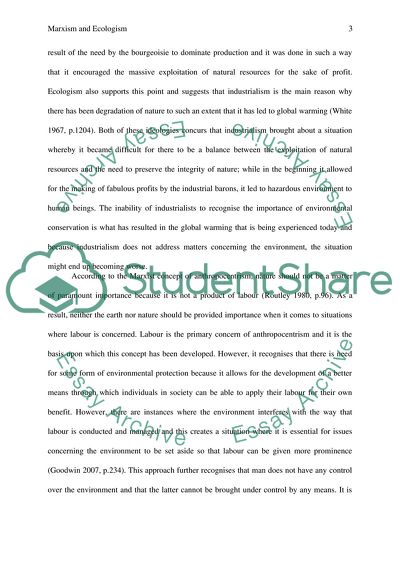Cite this document
(Comparison of Marxism and Ecologism Coursework Example | Topics and Well Written Essays - 1750 words, n.d.)
Comparison of Marxism and Ecologism Coursework Example | Topics and Well Written Essays - 1750 words. https://studentshare.org/politics/1866816-compare-and-contrast-marxism-and-ecologism-which-ideology-do-you-find-more-convincing-and-why
Comparison of Marxism and Ecologism Coursework Example | Topics and Well Written Essays - 1750 words. https://studentshare.org/politics/1866816-compare-and-contrast-marxism-and-ecologism-which-ideology-do-you-find-more-convincing-and-why
(Comparison of Marxism and Ecologism Coursework Example | Topics and Well Written Essays - 1750 Words)
Comparison of Marxism and Ecologism Coursework Example | Topics and Well Written Essays - 1750 Words. https://studentshare.org/politics/1866816-compare-and-contrast-marxism-and-ecologism-which-ideology-do-you-find-more-convincing-and-why.
Comparison of Marxism and Ecologism Coursework Example | Topics and Well Written Essays - 1750 Words. https://studentshare.org/politics/1866816-compare-and-contrast-marxism-and-ecologism-which-ideology-do-you-find-more-convincing-and-why.
“Comparison of Marxism and Ecologism Coursework Example | Topics and Well Written Essays - 1750 Words”. https://studentshare.org/politics/1866816-compare-and-contrast-marxism-and-ecologism-which-ideology-do-you-find-more-convincing-and-why.


